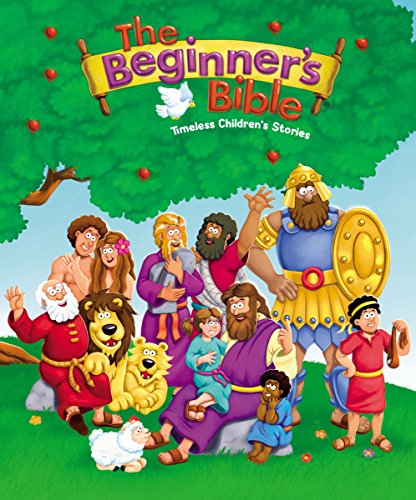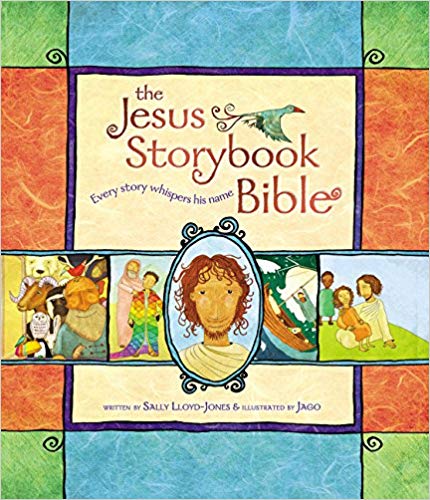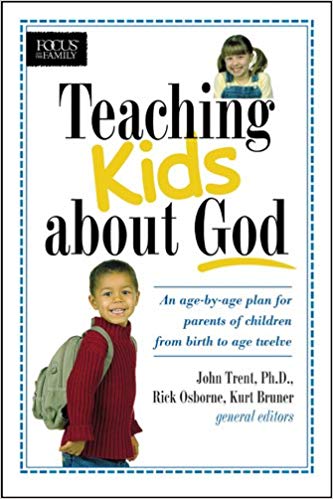For Christian parents, teaching their children about the God they love and serve is a crucial part of child-rearing. Sometimes the task can seem daunting but knowing how important it is leads to seeking ways to accomplish this so the children can reach an understanding of who God is, and how we are to relate to Him.
Few parents have time to sit down and create a lesson plan to formally teach everything about God to their children, but it is possible to convey much of it through a more relaxed approach. Everyday life that includes God will seep into children’s understanding over time, and there are some other ways to help encourage children to learn.
Live Your Faith
It has been said in many ways that children learn what they live. Children pick up things from their parents, from the time they leave the womb. They will notice if you tell them about God but live like there is no God. While we often pay close attention to our actions and testimony when out in public, around strangers, it is so very much more important to pay close attention at home where we have the greatest impact.
Let your children see you reading the Bible. Let them hear you sing hymns of praise, speak Scripture verses, praise God for what He has done in your life. Minimize negativity and maximize gratitude.
Have Family Devotions
Also known as the “family altar,” this is a time when the whole family gathers for a time of Bible reading, discussion, and prayer. This will look different in different families.
A standard format for a family with both parents would have the father choosing a Bible passage and either reading it aloud or having the family take turns reading around a verse at a time until the passage has been finished. Then there might be a question and answer time to verify comprehension, or dad might share some insight about the passage, allowing questions when he has finished (or while he is sharing, depending on the dad). Mom might then lead the children in a hymn or praise song. The session usually ends with prayer time, often asking for requests before praying.
Sometimes families use a devotional book. There are many available to aid in a more efficient devotional time. Sometimes families have different compositions, and mom may lead the reading and discussion or everyone may share in it. Consider letting the children lead the Bible reading or singing time occasionally. There is no “right” way to have a family devotion time; what matters is that the devotion time lifts up Christ and teaches the family more about the Savior.
Have Bible Time
Sometimes family devotions are not possible. Sometimes families want to have morning and evening Bible times, with family devotions at one of them. The other one, or instead of devotions in some families, a Bible time can be the solution.
During Bible time, read aloud to the children from the Bible. Consider having coloring pages to give them something to keep their hands busy while you read. There are free printable coloring pages available that go with nearly every Bible story.
Include a Scripture verse to memorize. Repeat it several times throughout the day until everyone knows it. Review at least once a week to keep it fresh.
There are also Bible story books that follow as close to the text as possible while still making it easier for young children to understand and enjoy the story. The Bible Story by Arthur S. Maxwell (a ten volume set) covers the major stories from Genesis to Revelation and has been used for teaching the Bible to children since the 1950s.
There are also children’s Bibles that may encourage engagement, with pictures and simple language. Some of these are linked at the bottom of the page.
Object Lessons and Applications
Teachable moments occur regularly throughout an average day. When something comes up that reminds you of God’s character or creation, say so! This makes children realize that God is relevant.
Children learn better when they experience things. Act out Bible stories. Do projects with them that show God’s hand – suggestions might include:
- Make a birdhouse. Talk about planning and how creation shows it was planned. When it is finished and installed, talk about the kinds of birds and how they show God’s planning.
- Get an ant farm, or study them outside. Talk about their diligence, their division of labor, and their organization.
- Visit a beekeeper. Discuss bees and how they work. Examine the honeycomb and honey. Talk about how God made them perfectly suited for what they do, and how the honeycomb they make is perfectly aligned and planned.
- Make cards to send to others for encouragement. Talk about lifting up others and being kind. Pray with them for the recipients. Consider choosing a missionary for this project.
Serve as a family. Volunteer to help at church. Offer to aid an elderly neighbor, friend, or relative that needs assistance with things like yard work and housework. Visit a nursing home, and read or sing to the residents.
Explain big concepts and difficult truths. It may surprise you how much the children understand. If you do not know the answer, look it up with your child. Doing a study together is a great way to encourage personal study.
Explain why you do the things you do – and why you do not do the things you avoid. Understanding the reasons behind things will give a firm foundation for the child’s own beliefs as they form. Remember that the phrases you use affect the meaning. We get to go worship God on Sundays at church, not we have to go. Have a positive attitude about what God expects from us.
Talk to them often, but also be sure to listen. When they ask questions, wait until they finish so you know the whole question before you answer. If they seem unhappy with your answer, clarify the question so you know that you are explaining what they really want to know. Let them share their thoughts and fears, hopes and dreams.
When you catch them doing right, compliment them! Draw attention to the good, Christlike qualities you see in them. Keep an eye out for the fruit of the Spirit – love, joy, peace, longsuffering, gentleness, goodness, faith, meekness, temperance. Discipline for wrongdoing is required, yes, but positive reinforcement goes much farther with children. They do need to know that there are consequences when they do wrong, but they also need to know that your love is unconditional and you do see them when they are doing right.
Humor is a great teaching tool! When we enjoy something, we remember it better. Be careful not to use crude humor, though, since that would defeat the purpose.
Stories are great to encourage learning. Jesus often used parables to enhance learning among His followers during His earthly ministry. Be careful to be sure that the stories are giving the right message. This includes things like television, books, and movies – remember that the content matters. Children integrate what they hear, read, and see, so encourage right living with uplifting entertainment that encourages a Godly life.
Distilled into just a few words, teaching children about God requires availability, belief, conversation, discipline, engagement, family time, and Godly living.
Resources
The BIBLE STORY
The complete ten-volume set.
The Beginner’s Bible
Illustrated in full color, more than 90 stories from the Bible are designed to allow children to enjoy and understand the Bible.
The Jesus Storybook Bible
44 stories from the Old and New Testaments are easy for children to understand from preschool to sixth grade. The selected stories teach how Jesus is the center of everyone’s story.
The Complete Illustrated Children’s Bible
Almost 300 illustrations surround the text of this book that introduces children to the Scriptures and the stories held therein.
The Action Bible
The Bible, written in graphic novel format, is appealing to young readers. Arranged in chronological order, the stories narrated within are clear and beautifully illustrated.
The Golden Children’s Bible
A clear, simple presentation of Bible stories to introduce children to the truth of the Bible, this is intended for children between ages 3-7, but is best used as a read-aloud.
Teaching Kids about God
Need more ideas? This book walks through it from birth up.









